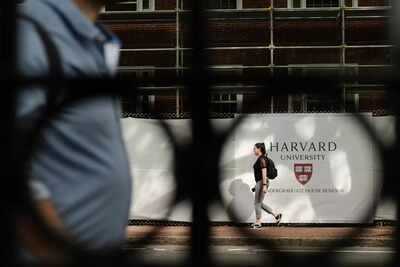ARTICLE AD BOX

For years, American campuses have been accused of losing their ability to host meaningful debate. Polarisation, cancel culture, and ideological echo chambers have often turned student forums into battlegrounds where disagreement feels impossible.
But a recent case from Harvard University offers a surprising counterpoint. As The New York Times reported in an op-ed authored by the chairs of The Harvard Crimson’s editorial board, the student opinion writers found a way to navigate one of the most divisive topics of our time, the Israel–Palestine conflict, without collapsing into hostility. Their method? A set of ground rules so simple they almost sound obvious.
From conflict to conversation
In April 2024, just hours after students pitched tents in Harvard Yard to form a pro-Palestine encampment, The Crimson’s editorial board met to debate how the paper should respond. According to The New York Times, the board included both staunchly pro-Israel and staunchly pro-Palestinian students, one of them even serving as president of Harvard Hillel. Others joined remotely from the encampment tents or from homes where they were observing Passover.
Despite the charged atmosphere, the board reached consensus on a clear stance: Harvard should not deploy the police against peaceful protesters. The real achievement, however, lay in how they got there. Students disagreed sharply, but the process remained respectful. “The success of these reforms upends the belief that lively, respectful discourse is no longer possible at places like Harvard,” the chairs wrote in The New York Times.
A culture shift years in the making
This civility did not emerge overnight. Just a year earlier, debates had been far less balanced. When the United States Supreme Court banned affirmative action in university admissions in 2023, dissenting views in the boardroom reportedly drew eye-rolls, mutters, and dismissive rebuttals. Even worse, some of the editorials that resulted from those contentious discussions came across as narrow and unpersuasive.
In 2022, for instance, the board published an editorial supporting the Boycott, Divestment, Sanctions (BDS) movement against Israel without fully grappling with counterarguments. The backlash was swift: A United States senator, prominent faculty members, and online critics condemned the piece, while board members faced harassment and threats. That crisis became a turning point. As the chairs told The New York Times, the experience convinced the board to reform its habits of discussion.
The deceptively simple reforms
The changes introduced in early 2024 were surprisingly straightforward.
- Zero tolerance for dismissing dissenting views or reacting with visible disapproval.
- Recognition that personal experiences matter, but discouragement of rants or overly emotional appeals that can silence others.
- Immediate, calm intervention by moderators when discussions went off-track.
- Broader reforms like banning laptops during meetings, enforcing regular attendance, and fact-checking remarks in real time.
These steps, small as they seem, created trust, accountability, and a culture where disagreement felt safe.
Lessons for universities everywhere
Three times a week, during two of Harvard’s most divisive semesters in recent memory, this student group proved that civil debate is not just possible but productive. Editorials became sharper, reasoning stronger, and counterarguments better addressed. The lesson, the student chairs argue in The New York Times, is not that universities need to overhaul admissions to recruit more conservatives or centrists. Nor is it to accept political interference, like former President Donald Trump’s proposed crackdowns on higher education. Instead, the solution is deceptively simple: Build environments where students with opposing views are required to talk, under rules that protect civility.
Reclaiming the lost art of debate
At a time when illiberalism on campuses is seen as inevitable, Harvard’s case shows it does not have to be. With intention and structure, even the most polarising debates can unfold with mutual respect. The experiment at The Crimson is more than a student newsroom story; it is a blueprint. If student journalists at Harvard can debate Israel and Palestine without imploding, then perhaps universities everywhere can rediscover something long thought lost: The power of argument without animosity.TOI Education is on WhatsApp now. Follow us here.



.png)
.png)
.png)
















 3 hours ago
4
3 hours ago
4








 English (US) ·
English (US) ·